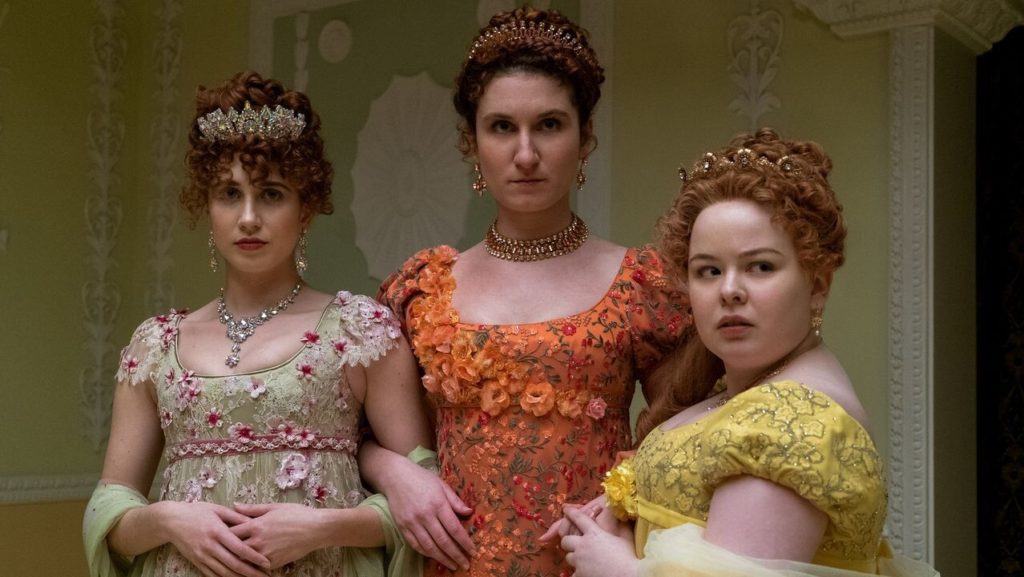Just 28 days after its premiere, the period serial The Bridgertons has been seen in 82 million homes dethroning The Witcher as the most popular series. According to Netflix, it is its new best premiere on the platform and this has been made known with great fanfare by dozens, hundreds of media on film and TV around the world that have made the press release news.

Partly because it is an important fact for the sector because anything that has Netflix or Disney+ in the headline generates a good amount of clicks and also, we must not forget it, for certain inertia that perhaps should be reconsidered.
What do 164 million minutes mean? As many already know, what Netflix has considered “viewing” for some time is that someone has connected at least two minutes of a stopwatch to the selected product. That is, for a series that lasts eight hours, the streaming emporium is enough that you have consumed much less than 1% of its content to become a viewer in its count. In addition, we would have to rely on Netflix’s good faith when it comes to leaking this data since the platform does not allow any external observer to check its claims.
And even with those. Netflix is the most transparent platform. Months ago there was a debate in the world of an exhibition about what had happened to the digital premiere of Mulan. By pandemic issue, Disney+ decided to pass a blockbuster of 200 million dollars to its online app at a cost of € 22 per account. A very risky move. After its virtual premiere, and having no verifiable data, the expert funds ventured so much that the move had been a success as a failure as something that would have remained in between.
The company’s congratulatory messages also did not allow them to guess how they had fared.
It has happened more times and, if no one does anything, it will continue to happen. At the meeting with his investors to talk about the company’s departure, Disney CEO Bob Chapek was only able to say that Hamilton, the supposed biggest success of the year on the platform, had attracted “millions of viewers.” Apple said Greyhound, its own Tom Hanks movie, had been “Apple TV Plus’ biggest hit to date” and that “its audience was on par with that of a summer blockbuster.” Hulu said Palm Springs “broke records by getting more hours of viewing in its first three days than any other film on the service during that period.”
Dozens of empty numbers exist in a bubble without common metric references.
But if no one says their numbers, none matter, doesn’t it? Not exactly, because there is a speculative factor with real-world consequences: the stock market. There are more and more agents at play in the VOD environment, but with no way to compare them, it is very difficult to know who is throwing the pisto and who is not. Take Disney+, which in its latest bombastic announcement at the end of the year described its aggressive “turn to streaming.” Will this be justified in the internal data they handle? Does that mean Mulan has gone well and the future is The Mandalorian? Or will it be some kind of marketing strategy that involves temporarily inflating how well this department is doing?
The mouse company exceeded its expectations of subscription to the app in half the expected time. ATT announced that following the release of Wonder Woman on HBOMax they reached their subscription goals two years earlier than thought. Apple has not wanted to leak data, but the discourse is the same in all cases: “We are number one.” Nobody stops growing, and even with everything Netflix, right now the undisputed king of all of them, do not stop increasing and increasing its debt, which already exceeds 15,000 million dollars.
The invoice. Meanwhile (and if we discount the conjunctural alcism derived from the trolling of Wall Street by traders who are now helping AMC) the audiovisual entertainment companies that do audit their figures for decades are taking their toll. No metric system is perfect, but if everyone embraces it, as happens on television, we have data such as that last year 12% fewer individuals aged 18 to 49 watched TV, or that HBO (the TV network), Showtime, and Cinemax have done quite badly. We also know that, due to the coronavirus, ticket sales in cinemas are being calamitous.
The question is whether the secrecy of how leisure is really going in VODs will be able to make investors turn their backs on it more than they should to exhibition chains that, when everything returns to normal, would still be a very beneficial model. Because, despite what it may sometimes seem, a theatrical release of a blockbuster is 10 times more lucrative than the Netflix model. Reduced to its minimum essence, there is a suspicion that the advertising wars of streaming could cause movie theaters to close that should not have closed.
There are also other victims. They are the creators. Without box office figures or ratings, someone who has directed or produced a product will be unable to negotiate for their future collaboration with the minimum power with the heads of the platform because they can tell you the same thing that their work has been a success or a failure by teaching them on the iPad a series of chosen data. It is in the mercantile darkness, and who knows if the creator could have discovered a theme or a narrative that is a gold mine and his contractors hide it from him and then take that production elsewhere.
So, for the next time the streaming giants grab headlines by pulling out “numbers, let’s take into account the narrow framework in which they offer it to us.
